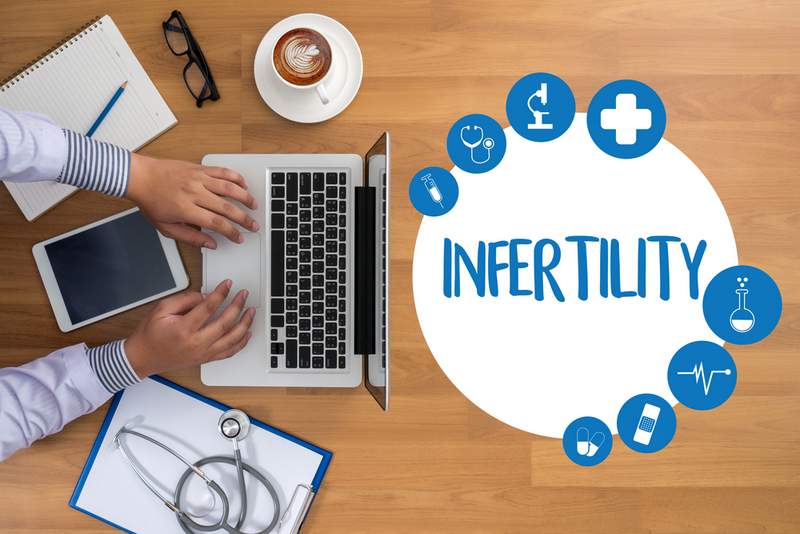Fertility Drugs – An Overview
Fertility drugs, used to boost fertility and help increase the chances of pregnancy, are usually the first course of treatment for many individuals and couples who seek medical advice regarding their infertility issues.[1] Fertility drugs are designed to act like the follicle-stimulating hormone (FSH) and luteinizing hormone (LH), both of which are needed to trigger ovulation; and in women who are ovulating, fertility drugs may be prescribed to help stimulate a better egg or produce extra eggs.[2]

When an individual or couple seeks medical advice for infertility issues, their doctor may prescribe fertility drugs based on one of the four categories:
-
Fertility drugs designed to stimulate ovulation
-
Fertility drugs used during IVF to control the menstrual cycle
-
Fertility drugs to address a medical issue that is affecting infertility
-
Fertility drugs to treat other infertility issues[3]
There are a number of fertility drugs in the market but one commonly used fertility drug is Clomid or clomiphene citrate.[4] Clomid is used to treat both male and female infertility and according to statistics, around forty to forty-five percent of individuals or couples who use Clomid should be able to get pregnant by about six cycles of use.[5]
Clomid works by tricking the body into thinking that it’s not producing enough estrogen by blocking the receptors that react to the estrogen hormone.[6] Some side effects of Clomid include nausea, mood swings, hot flashes, weight gain and bloating.[7]
A second common fertility drug is called Femara, also known as letrozole.[8] This fertility drug is designed to stimulate ovulation in women who have ovulation issues and has been implied to have similar success rates as Clomid.[9] While letrozole is actually intended for treating breast cancer, it also works in a similar manner to Clomid and thus, has some similar side effects along with some additional ones like blurred vision, sleep issues, and spotting.[10]

A third common fertility drug is known as gonadotropins, which may contain the follicle-stimulating hormone (FSH) or the luteinizing hormone (LH), or even both.[11] Gonadotropins are used for individuals or couples undergoing to help increase the chances of getting pregnant.[12]
Gonadotropins are usually administered via injection and some side effects may include upper respiratory tract infection, acne, weight gain, rash or soreness from the injection site, and upset stomach.[13] Individuals or couples prescribed gonadotropins may also find that their chances of become pregnant with twins is around thirty percent higher than if prescribed with the other two aforementioned fertility drugs.[14]
In conclusion, fertility drugs are used to treat a myriad of medical issues individuals or couples have regarding infertility. They may be used to help boost ovulation or address ovulation issues, treat medical conditions that affect fertility or increase chances of pregnancy when coupled with an assisted reproductive procedure (ART) such as IVF.
Sources:
[1] ‘Fertility Drugs: What They Are and How They Can Help’, in Altora Health, viewed on February 23, 2019, https://altorahealth.com/fertility-drugs-what-they-are-and-how-they-can-...
[2] Mayo Clinic Staff, ‘Female Infertility – Diagnosis & Treatment’, in Mayo Clinic, published March 8th, 2018, viewed on February 23, 2019, https://www.mayoclinic.org/diseases-conditions/female-infertility/diagno...
[3] ibid
[4] Gurevich, Rachel, ‘Overview of Fertility Treatments’, in verywellfamily, updated February 5th, 2018, viewed on February 23, 2019, https://www.verywellfamily.com/fertility-treatment-4157421
[5] ibid
[6] Gurevich, Rachel, medically reviewed by Anita Sadaty, MD, ‘Side Effects and Risks of Fertility Drugs’, in verywellfamily¸ updated October 17th, 2018, viewed on February 23, 2019, https://www.verywellfamily.com/what-are-the-potential-risks-of-fertility...
[7] ibid
[9] ibid
[11] Gurevich, Rachel, ‘Overview of Fertility Treatments’, in verywellfamily, updated February 5th, 2018, viewed on February 23, 2019, https://www.verywellfamily.com/fertility-treatment-4157421
[12] ibid
[13] Gurevich, Rachel, medically reviewed by Anita Sadaty, MD, ‘Side Effects and Risks of Fertility Drugs’, in verywellfamily¸updated October 17th, 2018, viewed on February 23, 2019, https://www.verywellfamily.com/what-are-the-potential-risks-of-fertility...
[14] ibid














